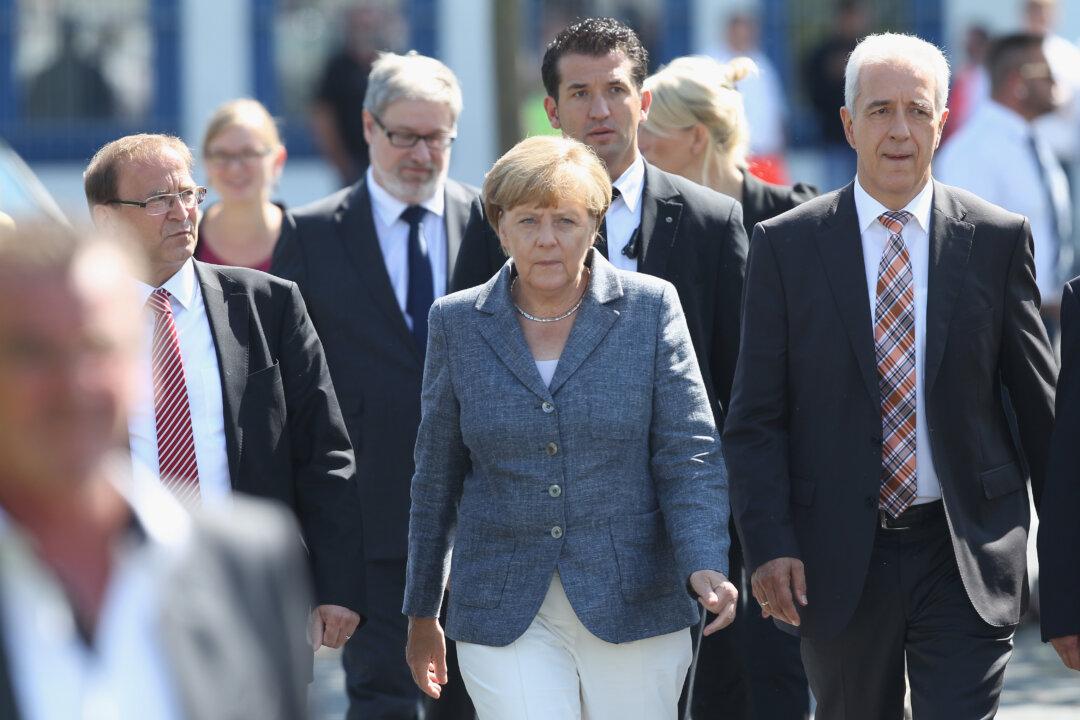HEIDENAU, Germany—Chancellor Angela Merkel was met with jeers Wednesday as she traveled to a German town at the center of a recent wave of far-right anti-foreigner violence, delivering a message of support for refugees as many look to her for leadership in handling the European migrant crisis.
“It’s shameful and repulsive what we experienced here,” Merkel told reporters in Heidenau, a town near the Saxony capital Dresden in eastern Germany where a far-right mob over the weekend hurled bottles and fireworks at police protecting a temporary shelter being set up for 600 refugees.
The violence in Heidenau and a series of recent arson attacks against asylum shelters elsewhere have catapulted the migrant crisis to the top of the political agenda in Germany. While most Germans have been welcoming — with many volunteering their time to help refugees and some even opening their homes — a vocal minority has protested the arrival of so many foreigners in such a short time.





